Are you considering diving into a reseller joint venture but aren't sure where to start? Tapping into the power of collaboration can unlock new business opportunities and enhance your market reach. In this article, we'll guide you through a comprehensive letter template that sets the foundation for a successful reseller joint venture agreement. Grab a cup of coffee and let's explore how this strategic partnership can benefit both parties!

Partnership Objectives and Goals
In a reseller joint venture agreement, partnership objectives and goals are crucial for establishing a productive collaboration. Such objectives may include increasing market penetration (targeting a specific percentage growth, like 20% annually) through shared resources, enhancing brand visibility within the consumer electronics sector by participating in at least five trade shows per year, and maximizing sales volume through targeted marketing campaigns, aiming for a minimum revenue of $500,000 in the first fiscal year. Moreover, both partners should focus on developing innovative distribution strategies that leverage combined logistics networks, ensuring timely delivery to retailers in regions such as North America and Europe. Additionally, establishing performance benchmarks, such as quarterly sales reviews, will facilitate ongoing assessments of the partnership's progress towards shared goals.
Roles and Responsibilities
In a reseller joint venture agreement, the roles and responsibilities of each party are clearly defined to ensure smooth operations and mutual benefit. The reseller (Entity A) is responsible for promoting and selling the products from the manufacturer (Entity B) in specified markets, including retail outlets and online platforms. Entity A must maintain inventory levels consistent with sales forecasts provided quarterly by Entity B. Meanwhile, Entity B is tasked with supplying high-quality products, along with marketing materials and training support for Entity A's sales team. Both parties are required to share sales data and market insights biannually to assess performance and strategy alignment. Additionally, both entities must collaborate on branding and promotional activities to enhance visibility and sales in their target market segments. Regular meetings, at least once per month, are necessary to review progress, address challenges, and identify new opportunities for expansion.
Revenue Sharing and Payment Terms
Revenue sharing agreements in reseller joint ventures often specify the division of earnings from product sales between parties. Typically, revenue sharing ratios may fluctuate between 50% to 70% for primary partners based on their contributions, including marketing efforts and inventory management. Payment terms usually stipulate monthly settlements, where proceeds are calculated and distributed within 30 days following the closing of each month. Details about acceptable payment methods, such as bank transfers or online payment systems like PayPal, are clearly outlined to ensure timely transactions. Additionally, penalties for late payments or administrative fees may be included to encourage on-time compliance. Clear definitions of gross revenue and permissible deductions, such as taxes and returns, support transparency and trust between the involved entities.
Confidentiality and Non-Compete Clauses
A reseller joint venture agreement is crucial for establishing a clear understanding between parties involved in selling products or services collaboratively. Confidentiality clauses are essential to protect sensitive information shared during the partnership, ensuring trade secrets, marketing strategies, and proprietary details remain undisclosed to competitors. Non-compete clauses restrict either party from engaging in similar business activities that could undermine the joint venture's success, typically for a specified duration and within defined geographical locations. These provisions are designed to foster trust and encourage open communication, promoting a successful and profitable collaboration in the marketplace.
Termination and Dispute Resolution
Termination clauses in reseller joint venture agreements outline conditions under which the partnership can be dissolved, specifying notice periods and obligations upon termination. Common reasons for termination include breach of contract, insolvency events, or mutual agreement. Dispute resolution mechanisms, such as arbitration or mediation, are typically included to provide structured processes for addressing conflicts that arise during the partnership. Entities often refer to established arbitration bodies, such as the International Chamber of Commerce (ICC), ensuring flexibility in choosing locations, often designated in major cities like New York or London, to conduct hearings. Deadlines and procedures for filing claims are critical, ensuring swift resolution while minimizing disruption to business operations.

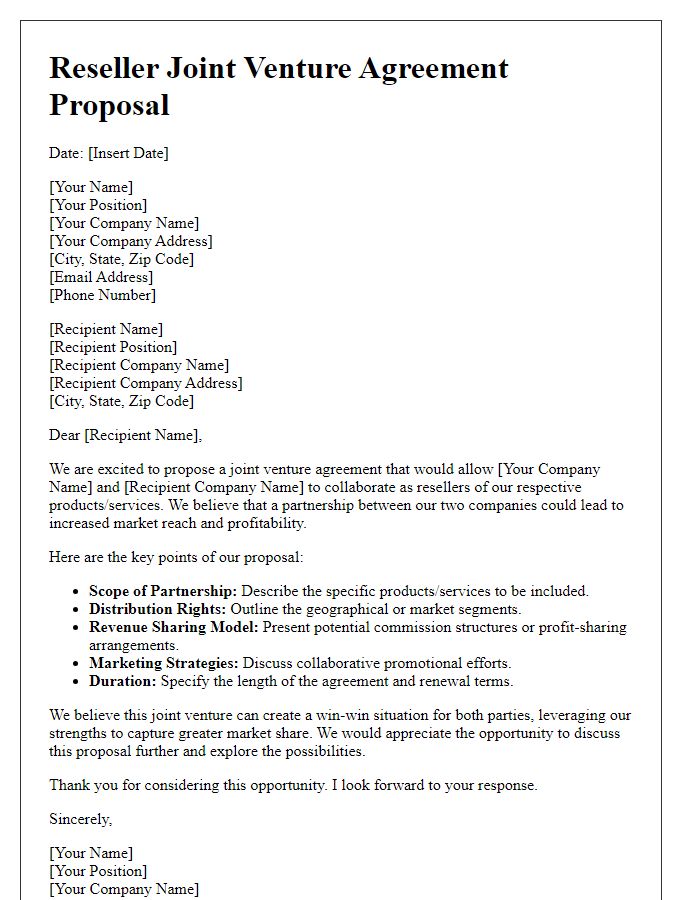
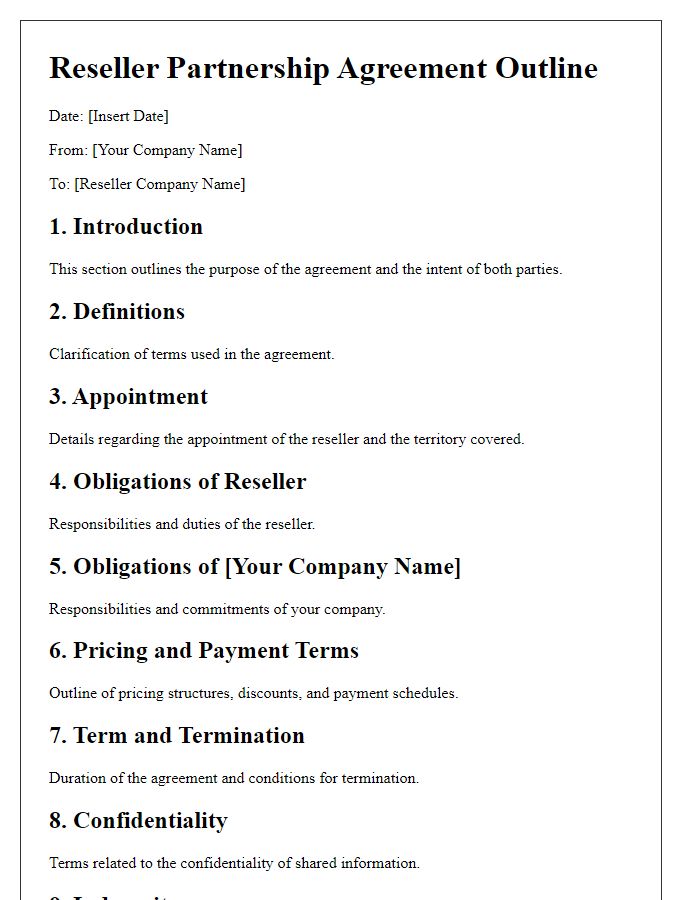
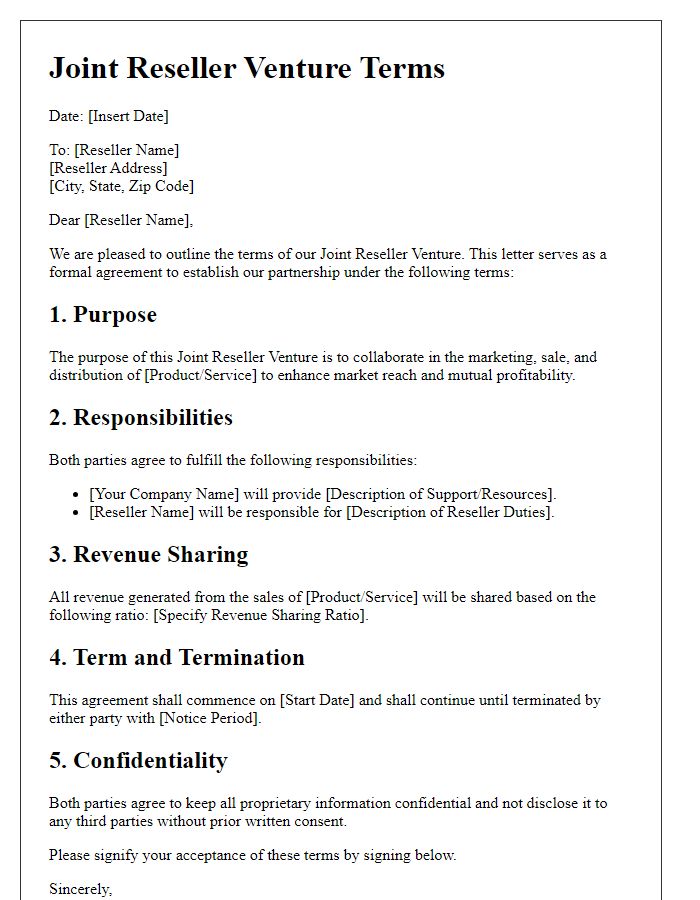
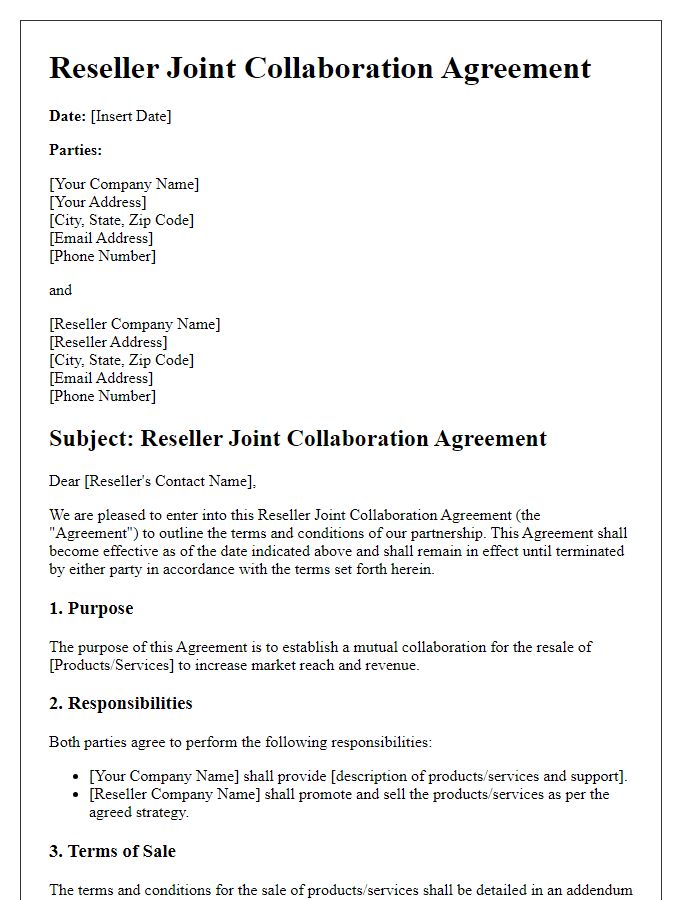
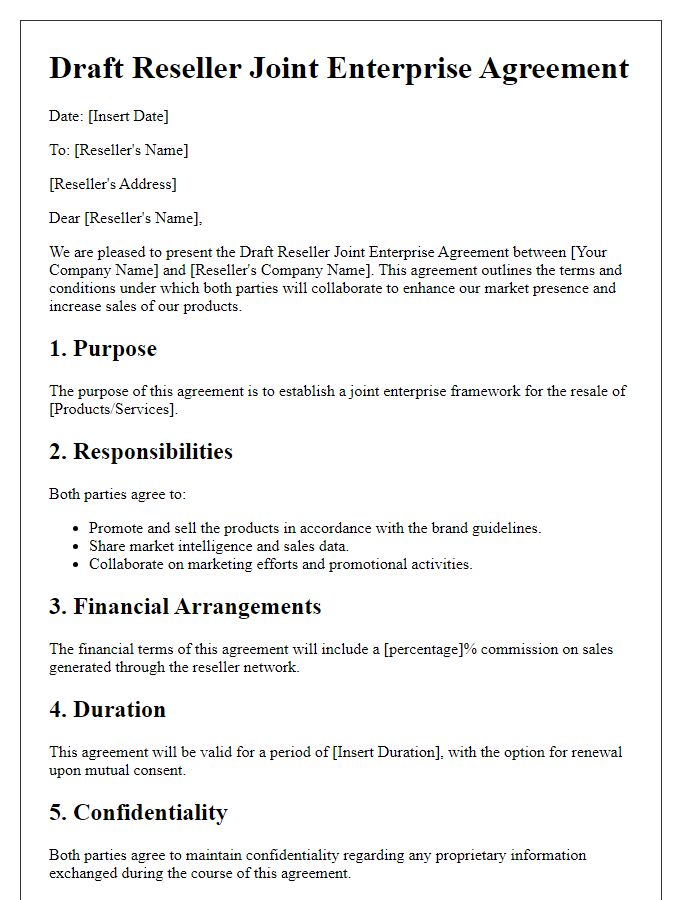
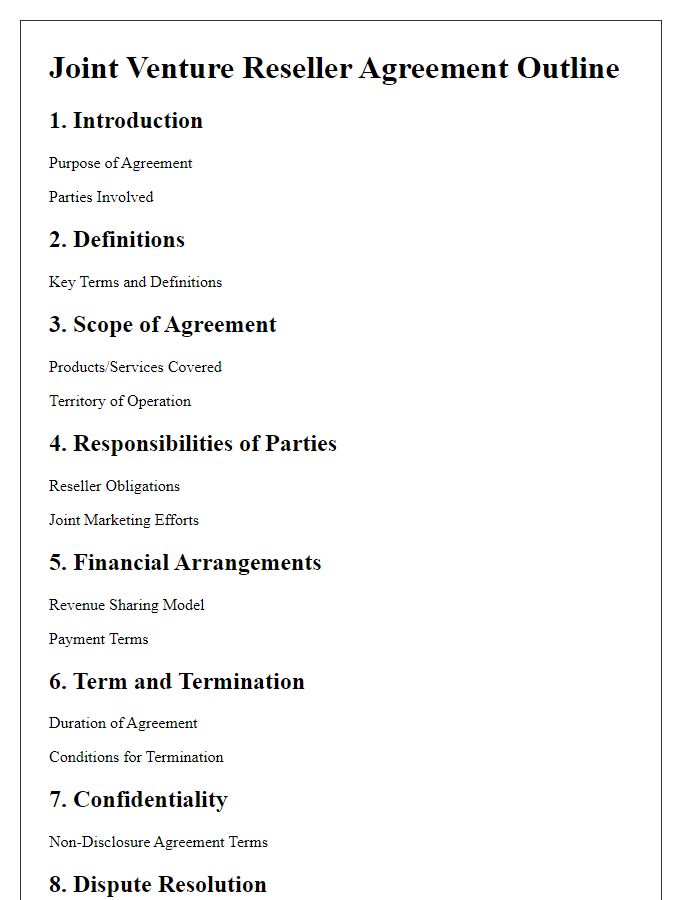
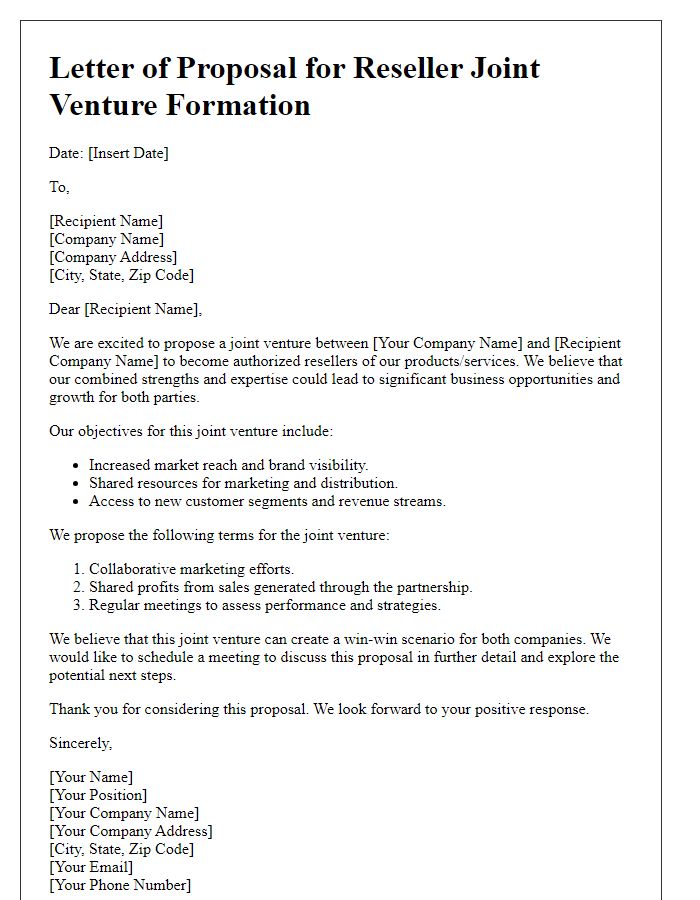
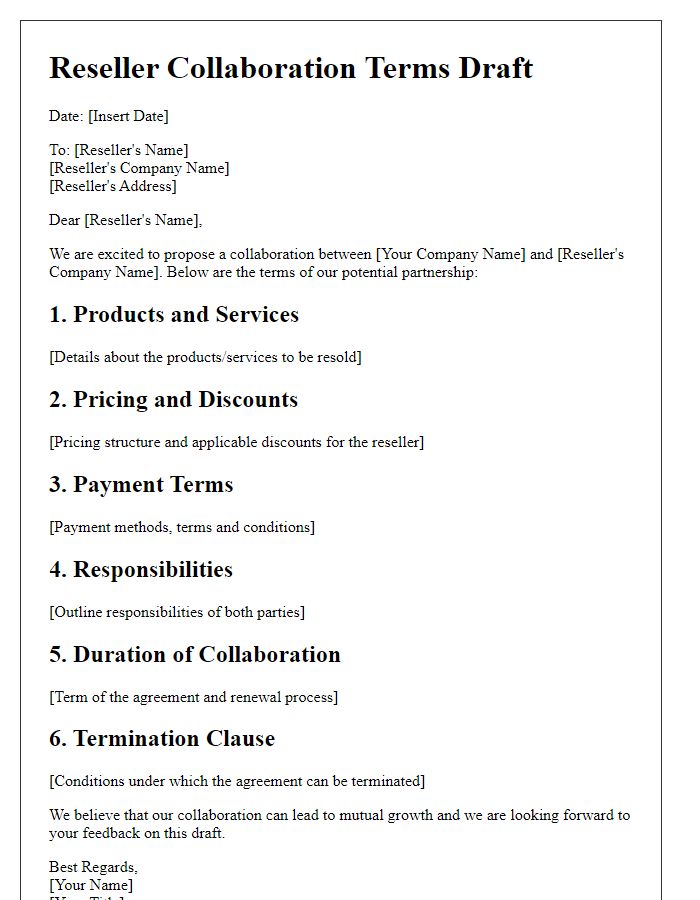
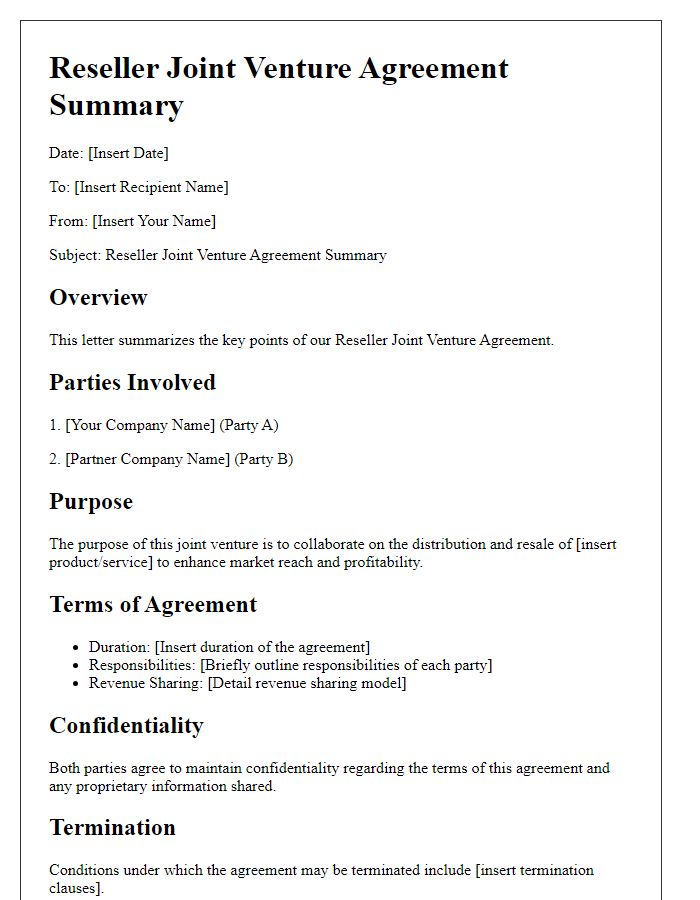
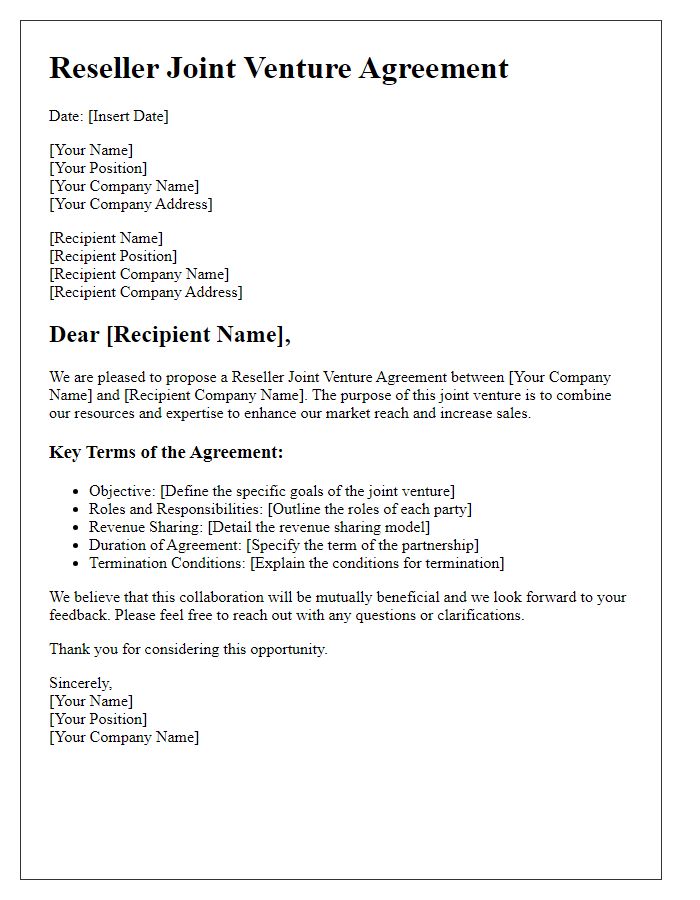


Comments